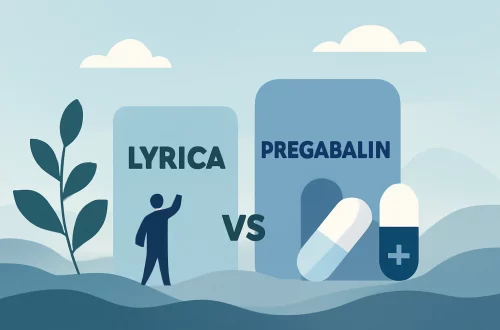
The Hidden Dangers of Plastic Tea Bags and Their Impact on Health
The modern world is grappling with the pervasive use of plastic, a material that has become commonplace in our daily lives. Among its various applications, plastic tea bags have emerged as a popular choice for tea lovers seeking convenience. However, beneath the surface of this seemingly harmless option lies a complex web of concerns regarding health and environmental impact. As consumers become increasingly conscious of their choices, it is essential to delve into the implications of using plastic-infused tea bags. While they may offer ease of use and quicker brewing times, the hidden dangers associated with these products warrant a closer examination.
The intricate relationship between plastic and our health is not a new topic; discussions around microplastics and chemical leaching have gained momentum in recent years. Many individuals may not realize that the very items they trust to deliver a comforting cup of tea could be harboring unwanted substances. Moreover, the environmental ramifications of plastic tea bags extend beyond personal health, affecting ecosystems and wildlife. As we navigate this complex landscape, understanding the potential risks associated with plastic tea bags becomes paramount. Shifting consumer preferences toward more sustainable alternatives may not only benefit our health but also contribute to a larger movement aimed at reducing plastic waste globally.
The Composition of Plastic Tea Bags
Plastic tea bags are often made from a blend of materials, including nylon, polyester, and polypropylene. These synthetic fibers are favored for their durability and heat resistance, allowing for the convenient packaging of tea leaves. However, the very properties that make these materials appealing also raise red flags. When exposed to hot water, these plastics can release harmful chemicals into the beverage.
One of the primary concerns is the leaching of microplastics into the tea. Studies have shown that brewing tea in plastic bags can result in the release of thousands of tiny plastic particles into the cup. These microplastics can potentially be ingested, leading to unknown health effects over time. While research in this area is still evolving, the presence of microplastics in our food and beverages poses a significant concern for public health.
Additionally, the chemicals used in the production of these plastics, such as BPA and phthalates, have been linked to various health issues, including hormonal disruptions and increased risk of certain diseases. The prolonged exposure to these substances, especially through regular consumption of tea, raises questions about the long-term safety of plastic tea bags.
Furthermore, many consumers are unaware that even so-called biodegradable or compostable tea bags may still contain synthetic materials that do not break down effectively in natural environments. This misconception can lead to a false sense of security, as individuals may believe they are making an environmentally-friendly choice when they are not.
In summary, the composition of plastic tea bags is a critical factor that warrants careful consideration. The potential for chemical leaching and microplastic contamination poses risks that may outweigh the convenience these products offer.
Health Implications of Consuming Plastic-Infused Tea
The health implications associated with consuming tea brewed in plastic bags are a growing area of concern. As we sip our favorite brews, the possibility of ingesting harmful substances becomes a pressing issue. Numerous studies have indicated that the act of brewing tea in plastic bags can lead to the leaching of potentially harmful chemicals into the beverage.
One of the most concerning aspects is the release of microplastics. Research has demonstrated that brewing tea in plastic bags can result in the release of millions of microplastic particles. These tiny fragments can accumulate in the human body over time, leading to unknown health risks. While the precise health effects of microplastics are still being investigated, there is evidence suggesting that they could contribute to inflammation, oxidative stress, and other adverse health conditions.
In addition to microplastics, the presence of chemicals like BPA and phthalates in plastic tea bags raises alarms. These substances are known endocrine disruptors, meaning they can interfere with the body’s hormonal systems. Prolonged exposure to such chemicals has been linked to various health issues, including reproductive problems, developmental disorders, and an increased risk of chronic diseases.
Moreover, individuals with weakened immune systems or pre-existing health conditions may be particularly vulnerable to the effects of these harmful substances. As such, it is crucial for consumers to consider the potential health risks associated with their tea choices, especially if they consume tea regularly.
The good news is that there are alternatives available. Many brands are now offering tea bags made from natural, biodegradable materials like paper or hemp. These options provide a safer and healthier way to enjoy tea without the hidden dangers associated with plastic.
In conclusion, the health implications of consuming tea brewed in plastic-infused bags cannot be overlooked. The potential for chemical exposure and microplastic ingestion raises significant concerns for consumers. By opting for healthier alternatives, individuals can reduce their risk and enjoy their favorite beverages with peace of mind.
The Environmental Impact of Plastic Tea Bags
The environmental impact of plastic tea bags extends far beyond individual health concerns. As the world grapples with plastic pollution, the contribution of single-use products like tea bags becomes increasingly significant. The convenience of plastic tea bags often comes at a steep environmental cost, prompting a need for greater awareness and action.
One of the primary environmental issues associated with plastic tea bags is their contribution to plastic waste. Many consumers may not realize that traditional plastic tea bags do not decompose naturally. Instead, they can persist in the environment for hundreds of years, contributing to landfills and oceans filled with plastic debris. This accumulation poses a threat to wildlife, as animals can ingest plastic, leading to injury or death.
Moreover, the production of plastic tea bags involves the extraction and processing of fossil fuels, contributing to greenhouse gas emissions and climate change. The resources required for manufacturing these products add up, creating a significant carbon footprint. As consumers increasingly demand sustainable alternatives, the need for environmentally-friendly packaging solutions becomes paramount.
Fortunately, there is a growing movement toward sustainable packaging in the tea industry. Brands are beginning to prioritize eco-friendly materials, such as biodegradable tea bags made from plant-based fibers. These innovations not only reduce plastic waste but also align with the values of environmentally-conscious consumers.
In addition to choosing sustainable packaging, individuals can also take action by advocating for policies that promote responsible plastic use and waste management. By supporting brands that prioritize sustainability and making informed choices, consumers can contribute to a healthier planet.
In summary, the environmental impact of plastic tea bags is a pressing issue that requires immediate attention. The contribution to plastic pollution and the associated ecological consequences call for a collective effort to reduce reliance on single-use plastics. By opting for sustainable alternatives, individuals can play a significant role in mitigating the environmental challenges posed by plastic tea bags.
Making Informed Choices for a Healthier Future
In light of the hidden dangers associated with plastic tea bags, it is essential for consumers to make informed choices when selecting their tea products. Awareness is the first step toward reducing health risks and environmental impact. By understanding the potential hazards of plastic-infused tea bags, individuals can take proactive measures to safeguard their health and the planet.
When shopping for tea, consumers should consider a few key factors. First, look for brands that offer tea bags made from natural, biodegradable materials. Paper or hemp tea bags are often a safer choice and do not pose the same risks of chemical leaching and microplastic contamination.
Additionally, loose-leaf tea is an excellent alternative to pre-packaged tea bags. Using a tea infuser or a simple strainer allows individuals to enjoy their favorite blends without the need for plastic packaging. This not only reduces waste but also enhances the overall tea experience, allowing for a fuller flavor profile.
Education plays a crucial role in promoting healthier choices. By staying informed about the potential risks associated with plastic tea bags and advocating for sustainable practices, consumers can influence the market and drive demand for eco-friendly products. Sharing information within communities and supporting brands committed to sustainability can create a ripple effect, fostering a greater awareness of the impact of our choices.
In conclusion, making informed choices is vital for a healthier future. By opting for natural tea bags or loose-leaf tea, individuals can enjoy their favorite beverages without the hidden dangers of plastic. As consumers become more conscious of their purchasing decisions, the demand for sustainable alternatives will continue to grow, paving the way for a healthier planet.
**Disclaimer:** This article is for informational purposes only and does not constitute medical advice. For health issues or concerns, please consult a qualified healthcare professional.




